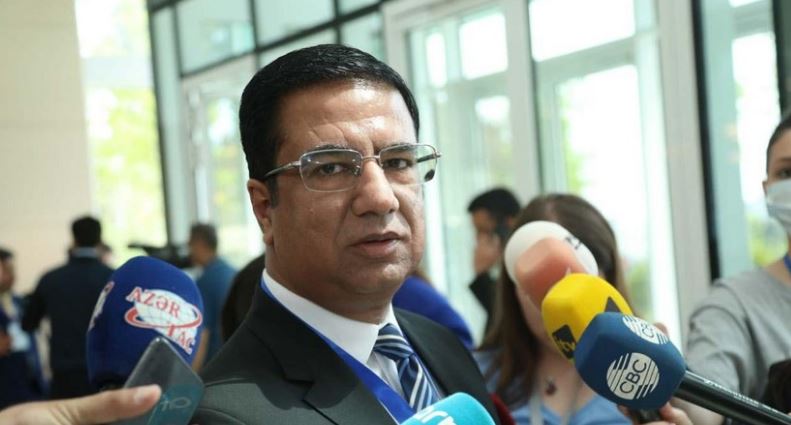Tashkent: When COVID-19 lockdowns forced people to stay indoors, many turned to online shopping to have their necessities conveniently delivered to their homes. But not everybody had the means to do so — certainly not in Central Asia, where around half the population lack internet access and many countries don’t have the systems needed for a robust e-commerce ecosystem.
A joint study by the Asian Development Bank and the Central Asia Regional Economic Cooperation (CAREC) Institute showed that in 2019, less than 10% of the population in Azerbaijan, the Kyrgyz Republic, Mongolia, Pakistan, Turkmenistan, and Uzbekistan shopped online.
More people were shopping online in Georgia, Kazakhstan, and Tajikistan, but they were still way below the 63% average for the European Union and the 30% average for countries with more similar socioeconomic profiles like Turkey. The People’s Republic of China was the only CAREC member country that had high figures.
More people in some Central Asian countries shopped online during the COVID-19 pandemic, but much remains to be done for e-commerce to reach its full potential in the region.
E-commerce, of course, goes beyond individuals clicking “add to cart” in an online store. It includes business-to-business transactions, like between a wholesaler and a retailer; business-to-government transactions, such as in e-procurement; and consumer-to-consumer deals within online communities.
Done right, e-commerce can facilitate trade across borders to drive economic growth, create employment and livelihood opportunities for women and people with disabilities among other underrepresented groups, and ensure continuity of services even amid unexpected disruptions like the pandemic. It also contributes to financial inclusion by encouraging the use of debit cards and/or mobile banking to ease payment.
Regional cooperation can help e-commerce thrive in Central Asia and improve the lives of ordinary people. Here are four ways CAREC countries can make this happen:
1. Improve internet infrastructure to expand access and lower costs
While broadband wireless technology infrastructure in most CAREC countries is fairly developed, some rural and remote areas remain uncovered. This could be addressed through stronger competition or the cooperative sharing of infrastructure by existing operators.
The cost of accessing the internet can be kept affordable by establishing or strengthening internet exchange points (IXPs), facilities where internet service providers, content providers, and others come together to exchange their data traffic. IXPs reduce costs by keeping domestically destined traffic within the country and can help save on international data transit costs. Having more data centers and access to local cloud computing will also boost the ability of businesses and entrepreneurs outside the PRC, where e-commerce is already thriving, to host e-commerce sites domestically.
2. Enhance cybersecurity and increase digital and financial literacy
Consumers need to be confident that their information will be safe when they buy online, and that there are safety nets if they encounter problems. CAREC countries—most of which rank low in the various measures of cybersecurity—need to ensure the use of encrypted servers, require companies to acquire international security certifications, and create security incident response teams.
Increasing consumer trust in financial institutions and mobile payment systems is also important. This can be done through consumer protection regulations, financial and digital literacy training, and raising awareness of the convenience and functionality of mobile payments.
3. Upgrade payments systems to make online transactions easier
Electronic payment systems in the CAREC region have improved, but some countries should be upgraded to increase their capacity to handle all types of transactions, including bank transfers, in real time. Azerbaijan and Uzbekistan, for example, also need to simplify the processes that enable merchants to accept online payments. Wider access to smartphones, which are used for mobile banking apps, digital wallets, and QR codes, could be enabled by reducing or eliminating duties on smartphone imports.
CAREC countries can also look at the feasibility of creating a regional payment card or adopting mutual recognition of their local payment cards to widen access to online shops and spur e-commerce growth across the region.
4. Make delivery services more reliable and less expensive.
Consumers need to be certain they will receive their online orders on time. While basic coverage by postal services is high in many CAREC countries, some still face challenges. Delivery options need to be expanded almost everywhere to meet the demands of online consumers, who must be able to track and trace their purchases and redirect deliveries from home addresses to optional pickup points such as parcel lockers if needed. Facilities that provide integrated storage and delivery as a service should be developed because these were found lacking in most CAREC countries. Making this kind of service available will encourage more merchants to get into e-commerce.
Automating trade documentation, including adopting single-window systems, can cut the time products spend in customs and reduce costs. Adopting a de minimis, possibly a uniform rate for CAREC countries, will also allow products under a certain value to be imported duty free. All these steps will further encourage international trade.
---------------------------------




